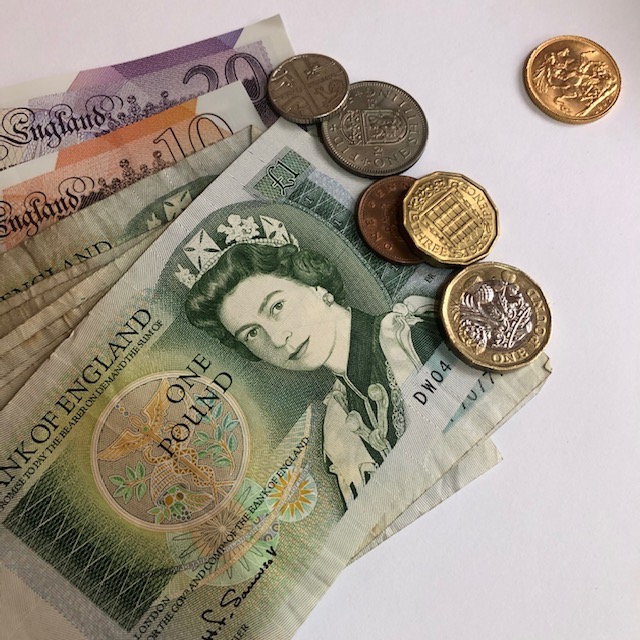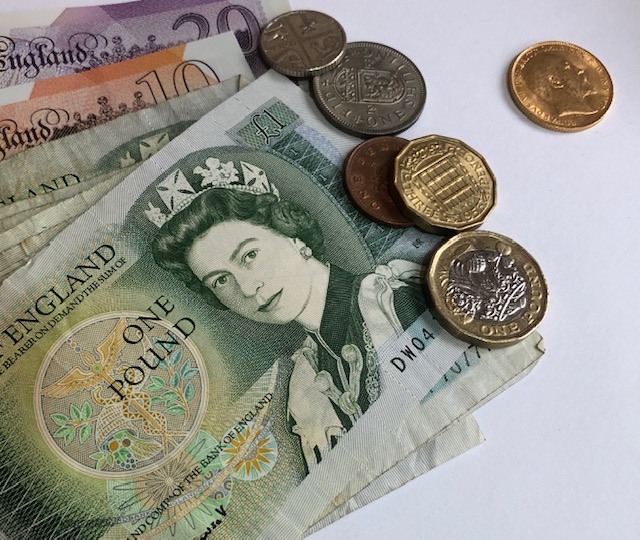Table of Contents
“Money is Gold, and nothing else”

“Money is Gold, and nothing else”, is a famous quote by influential banker J.P. Morgan back in 1912, but is very much relevant today. You may have heard a more common quote “Gold is money, everything else is credit”, which is a misquote but is most likely an updated version for modern times.
Why did he say this and what relevance does it have today?
To understand why “money is gold” is actually quite difficult for the majority of people. This is because since 1912 society has more or less forgotten what makes real money valuable as all that mainstream society knows is fiat currency such as pound sterling, dollars, euros etc.
J.P. Morgan’s famous quote was trying to highlight or explain how gold is used, not what it is in physical form.
For money to be money it has to be the following things:
- It has to be a store of value and maintain its purchasing power over long periods of time.
- It has to be a medium of exchange.
- It has to be a unit of account. The pound sterling is a unit of account for example as it has numbers on it.
- It must be durable.
- It must be portable so you can transfer the value easily.
- It has to be capable of being divided (divisible) Have the ability to give change.
- It has to be something that can be replaced by another equal part or quantity in paying a debt or settling an account. (fungible).
Fait currency does do most of these things apart from one very important part. It is not necessarily a good store of value over time.
Cryptocurrency also does most of these things however is still a relatively new type of currency in the grand scheme of things. Prices so far have been quite volatile.
Gold does all of these things, period.
Now let’s talk about money.

You have fiat currency (pound sterling, dollars, euros etc).
Cryptocurrency (bitcoin, ethereum etc).
And then you have gold and silver, which has been money for centuries.
There is a lot of debate on this subject. However, a simple reason why supporters of gold or self-proclaimed ‘gold bugs’ love gold so much, is the fact that gold has value because it is money itself in the most pure and basic form.
Put say, £1000 of paper money (fiat currency) in a drawer today along with the equivalent value in gold coin. Leave it for around 50 years. Take it back out again and which one will be able to buy you the most amount of goods or services? Chances are the gold will be of much higher value than the pile of paper money. That pile of paper money will not only have less purchasing power, it would have probably changed into a new, different note or most likely a digital version by then. Gold will still be gold and it will still have purchasing power.
If you were to ask an economist this question of money you will most likely get a complicated response about legal tender or narrow money (M0), cash created by central banks, and then go on to discuss broad money (M1/M2) loans, deposits, borrowing etc. All factual but not really addressing the issue.
Let’s break this down. Money can come into existence like any other goods or services. A result of labour applied to a specific task over time to create a useful outcome. A hair dresser cuts your hair, Apple produces a new i-phone, a local dairy farmer produces milk, a builder builds an extension on your house. All of these things are very useful products of labour.
Banks however create these pieces of paper or computer figures called currencies (Pound sterling, dollar, euro etc). These are merely money substitutes created out of thin air and magically appear in circulation by legal tender laws. These currencies are all based on credit not expended labour and are completely reliant on credit.
With credit, the ability to obtain goods or services today can be obtained on the understanding and trust that payment for these goods or services will be made over time by you the individual, by your labour.
Banks will countenance a loan agreement on the basis or hope that the labour will be expended over time to repay the loan.
When you go into a bank and ask for a loan for a car or apply for a mortgage, there is no actual money in existence before you applied for this loan. The moment you sign on the dotted line the money is then created as a credit in your account.
With this in mind any currency, any debt, any equity has counterparty risk, in that these promises can be broken. These promises could be broken by default on a payment (not paying the money back), fraud, or slowly broken through the debasement of a currency (printing more of it).
Currencies are backed by credit (loans) on a bank’s balance sheet. If there is a major default on these loans this can lead to bank runs and bank failure, (Northern Rock for example).
Counterparty risk is all around us in daily life,
You trust that your credit or debit card will work when you buy goods in a shop, you trust that you will be paid on pay day or an invoice for work done will be paid. You trust that the cheque or money you put in a bank will be there when you want to withdraw it. The shop you bought your goods from must also have the same trust in a bank or a credit card provider.
All these have counterparty risk and can fail.
Physical Gold that you own has no counterparty risk. It is a tangible asset. It does not derive its value from anything else as it has value in itself. With gold, an exchange is eradicated the moment the good and gold change hands.
Gold is unique in physical form it does not rot or tarnish or deteriorate.
Gold does not disappear, it is hoarded it is accumulated and it is kept in ‘deep-storage’.
Even though gold does not circulate as currency today. as J.P. Morgan said, ‘money is gold’. Therefore, gold is money in its purest form.
BullionVault lets private investors around the world access the professional bullion markets. You can benefit from the lowest costs for buying, selling and storing gold and silver.
4 Grams of FREE Silver on Sign up! VISIT BullionVault
Disclaimer: The articles or blog posts on this website are for general information/opinion purposes only and does not constitute either goldandsilveruk.co.uk or the author(s) providing you with legal, financial, tax, investment, or accounting advice. You should not act or rely on any information contained in the articles without first seeking independent professional advice. Care has been taken to ensure that the information in the articles are reliable; however, goldandsilveruk.co.uk does not represent that it is accurate, complete, up-to-date and/or to be taken as an indication of future results and it should not be relied upon as such.
The site goldandsilveruk.co.uk will not be held responsible for any claim, loss, damage, or inconvenience caused as a result of any information or opinion contained in these articles or blog posts and any action taken as a result of the opinions and information contained in these articles or blog posts is at your own risk. All rights reserved www.goldandsilveruk.co.uk
This website/blog may generate revenue through paid sponsorships, advertising, paid insertions and affiliate partnerships.
goldandsilveruk is a precious metals enthusiast who wants to give authentic, clear, simple, transparent information and opinion to readers. Compensation may influence advertising content, topics or posts made on the blog. However, all paid and/or sponsored content and advertising space and posts would be identified.
All facts and claims made in posts should be independently verified with the manufacturer or provider. If a conflict of interest exists in the content, it may not always be identified.
Changes made to the policy will be identified on disclaimer page and in the general privacy policy and T&C.
